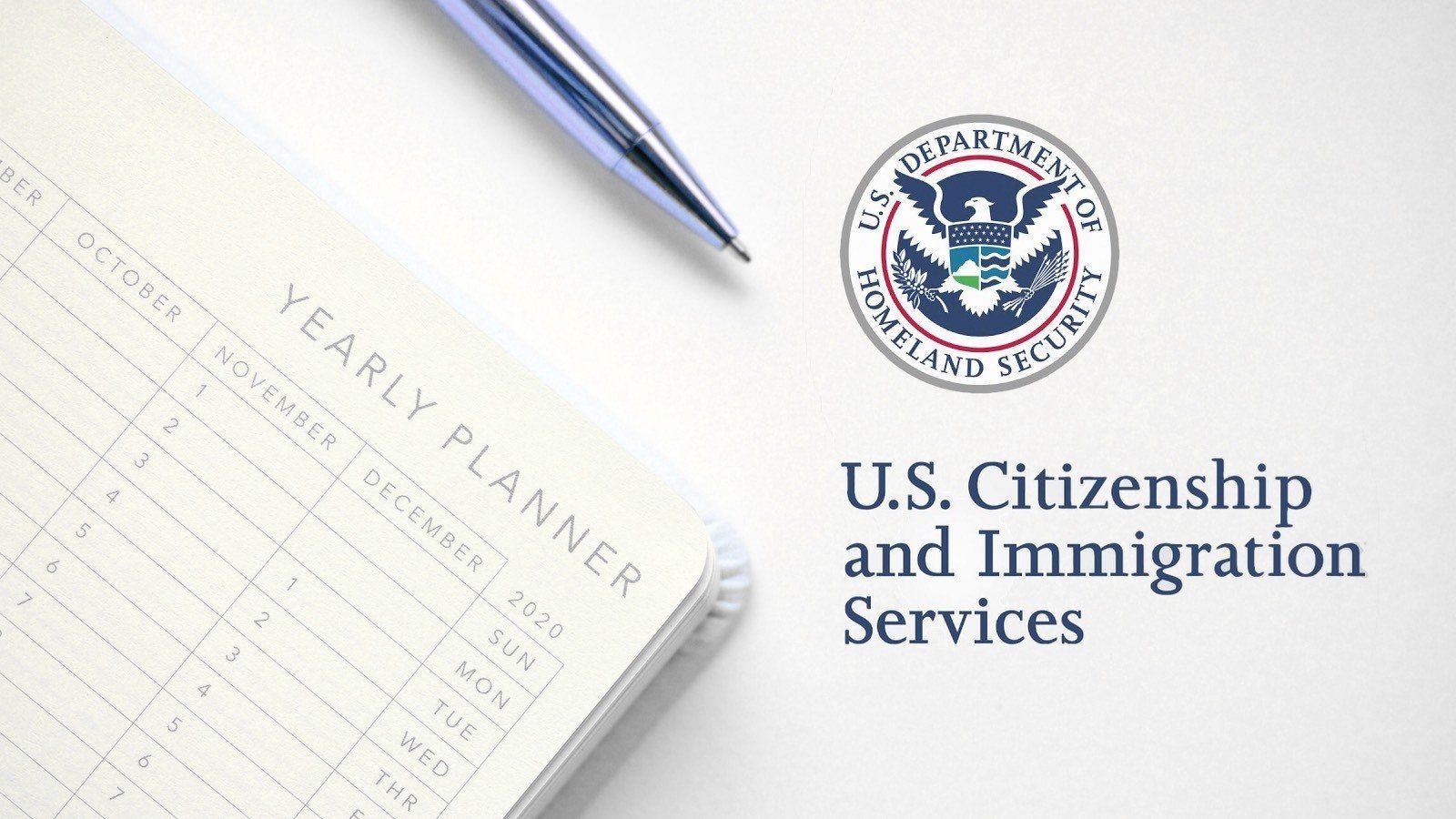What is Premium Processing and should I apply for or upgrade to Premium Processing for my EB-2 National Interest Waiver (NIW) Immigration case? It depends.
Monica Zafra • April 6, 2022
Click here to read this article in Spanish
Guidelines
On March 29, 2022, the Department of Homeland Security announced the expansion of USCIS' premium processing program to increase efficiency and reduce burdens to the legal immigration system. USCIS will seek to alleviate the large backlog exacerbated by the COVID-19 pandemic and expand premium processing to additional categories.
These changes will be implemented throughout fiscal year 2022 through a phased approach. By the end of this fiscal year, USCIS will expand premium processing eligibility to several different categories, one of which is the Form I-140 category for EB-2 National Interest Waiver (NIW) immigration worker petitions. USCIS is also expanding premium processing for other categories as seen here:
USCIS is known to have long processing times and as a result, several applicants have been awaiting updates from USCIS for months longer than anticipated. Premium Processing provides expedited processing for petitions sent to USCIS. Through this process, USCIS guarantees a decision within a shortened number of days to individuals who use the service or USCIS will refund the premium processing fee and still continue with their expedited processing. This is the deadline by which USCIS must issue either an approval notice, request for evidence, notice of intent to deny, or a denial notice. Upon receiving a request for evidence, an applicant may submit documents to support their case and
Fees and Processing Time
The estimated premium processing timeframe for I-140 EB-2 NIW cases will be 45 calendar days with a fee of $2,500. The current regular processing time for a decision for I-140 EB-2 NIW cases range from 8 months to over 1 year.
What does this mean for me and should I apply for or upgrade to Premium Processing for my case?
Premium Processing is a great option for the right applicant. Clients often request Premium Processing for their case due to the expedited turnaround time, which allows them to have a decision on their petition in a much quicker time than regular processing. It is important to consult with your attorney to discuss if you are a good candidate to upgrade. If your case is nearing adjudication, it may not be an ideal option, but if you are still far from a decision from USCIS, it may be a viable option for you. Until the final decision, USCIS will still only have premium processing for currently eligible cases, which are not EB-2 NIWs at this time. However, to prepare for this upcoming eligibility, foreign nationals can contact their Santos Lloyd case manager/attorney to discuss if their case is a good candidate to apply for or upgrade to premium processing when eligible.
If you are interested in applying for or upgrading to Premium Processing for your case, but are unsure if your case is eligible, please contact our office and speak with one of our experienced attorneys.
This blog is not intended to be legal advice and nothing here should be construed as establishing an attorney client relationship. Please schedule a consultation with an immigration attorney before acting on any information read here.
This Facebook widget is no longer supported.
Monica Zafra
Similar Posts

USCIS has developed new regulations to expand its premium processing services for certain case types in order to address major backlogs and provide relief to work permit holders. The rule will take effect 60 days after publication in the Federal Register, but the premium processing expansion will take place in phases over a three-year period. The chart below includes the specific case types that premium processing will be made available for by September 30, 2022.

U.S. Citizenship and Immigration Services (USCIS) has announced a major change to the H-1B cap selection process. Under a final rule issued on December 29, 2025, USCIS will replace the long-standing random H-1B lottery with a wage-weighted selection system that favors higher-paid and more complex positions. The rule is scheduled to take effect on February 27, 2026 , just ahead of the fiscal year 2027 H-1B cap registration season, unless delayed by legal challenges. If implemented, USCIS is expected to release additional guidance explaining how employers must submit registrations under the revised process. This change marks one of the most significant reforms to the H-1B program in recent years. Up until 2025, all registrations were treated equally once the annual cap was reached. Under the new system, selection odds will be tied to wage levels based on the U.S. Department of Labor’s Occupational Employment and Wage Statistics data. All H-1B registrations will still be placed into a single selection pool, but registrations tied to higher wage levels will receive multiple entries into that pool, increasing their likelihood of selection. Lower wage levels will receive fewer entries, making selection less likely but not impossible. H-1B wage levels are not determined solely by salary. Each wage level reflects the complexity of the job, the level of responsibility involved, and the education and experience required . Entry-level positions involving routine duties and close supervision are generally classified at the lowest wage level, while positions requiring independent judgment, advanced skills, and significant responsibility fall into higher wage levels. The highest wage level is reserved for roles that involve expert knowledge, strategic decision-making, and substantial leadership or technical authority. USCIS is expected to closely scrutinize selected petitions to ensure that the wage level claimed during registration is supported by the job duties and salary offered in the petition. Any discrepancies between the registration and the petition may result in requests for evidence, denials, or enforcement action. With the elimination of the purely random lottery, employers should begin preparing early by carefully evaluating job descriptions, wage levels, and overall H-1B strategy. Accurate classification and thoughtful planning will be essential under this new wage-based selection system. If you are an employer considering H-1B sponsorship, or a foreign professional wondering whether your position may qualify under the new wage-based system, consulting with experienced immigration counsel is more important than ever. Santos Lloyd Law is actively advising clients on H-1B cap registrations and strategy under the new rules. To discuss your options or determine whether you may qualify, contact our office to schedule a consultation.

During the recent administration there has been an increase in issuance of Requests for Evidence for EB-1A petitions for those of Extraordinary Ability. A Request for Evidence is a request that is made by USCIS that should explain how the evidence is deficient in proving the criteria argued and what additional evidence needs to be provided by the applicant to meet the criteria. EB-1A petitions are already normally subject to higher scrutiny because their approval is the first step needed to apply for Lawful Permanent Residence or a green card. USCIS normally requires not just evidence but that the evidence be provided with context and information to show why it matters in a particular field. For example, if you were providing evidence of your membership in an organization that requires outstanding achievements of its members, just providing evidence of the membership is not enough. You must explain what that membership is and provide background information on the organization granting the membership. You also need to provide evidence on the criteria that is used to select the members, information on those who select the members to show that they are recognized experts, other documentation such as articles about the membership organization to show its importance, and any other relevant evidence and background information to show that the criteria is met. A request for evidence being issued prior to the current administration was not uncommon, but in the current climate it is more surprising to not receive a request for evidence for this type of case. It is important to remember that a request for evidence is not a denial. Depending on the validity of the information in the request and the substance some Requests for Evidence can be overcome, and the case be approved. It is important to carefully review the request and note if there are any errors in the content and application of the regulations by USCIS. If you have an attorney, you should work with them and make sure that you provide any evidence you think may be helpful. Although there is a deadline by which a response must be submitted, attention to detail and patience will go a long way when dealing with having to respond to a request for evidence. If you believe you may qualify for this type of visa, please feel free to contact our office.



